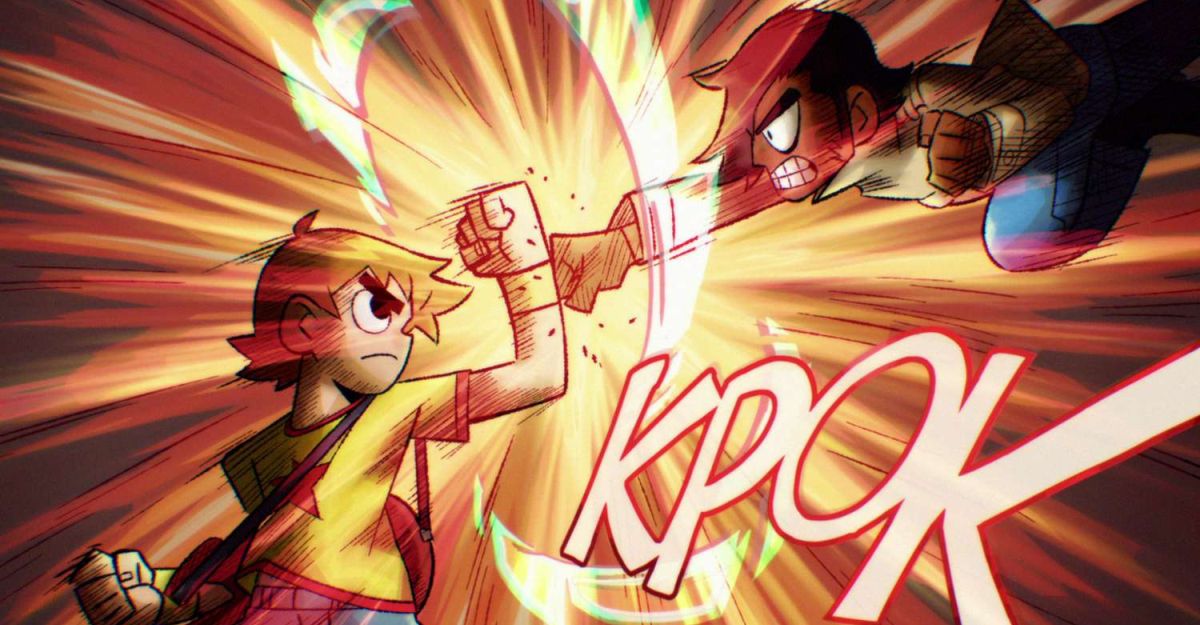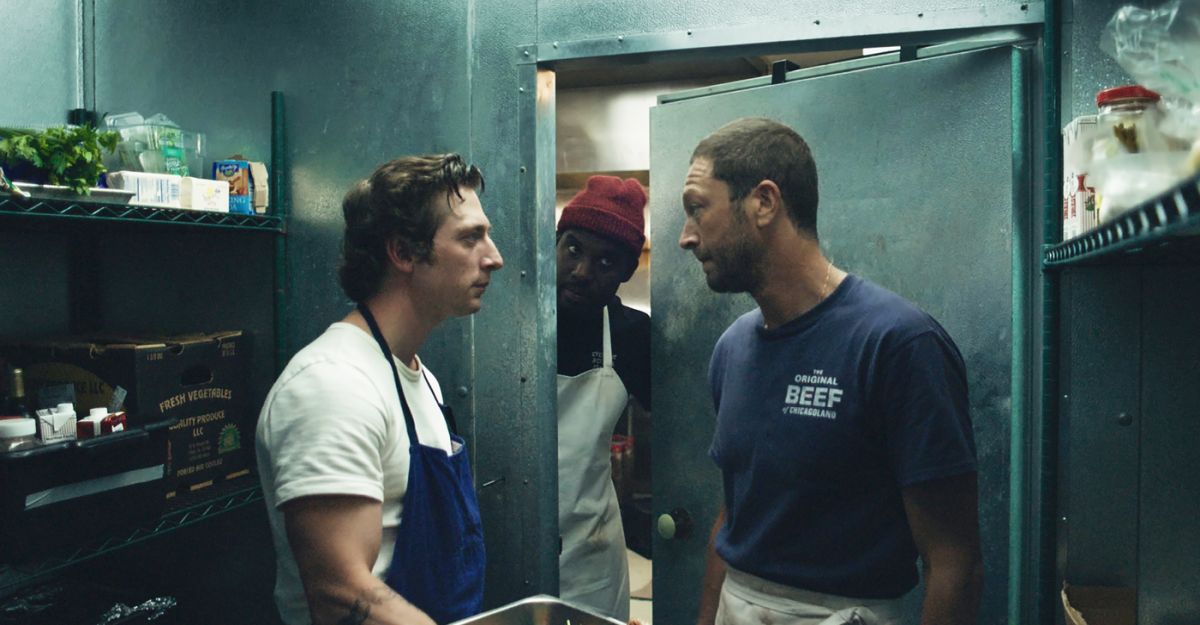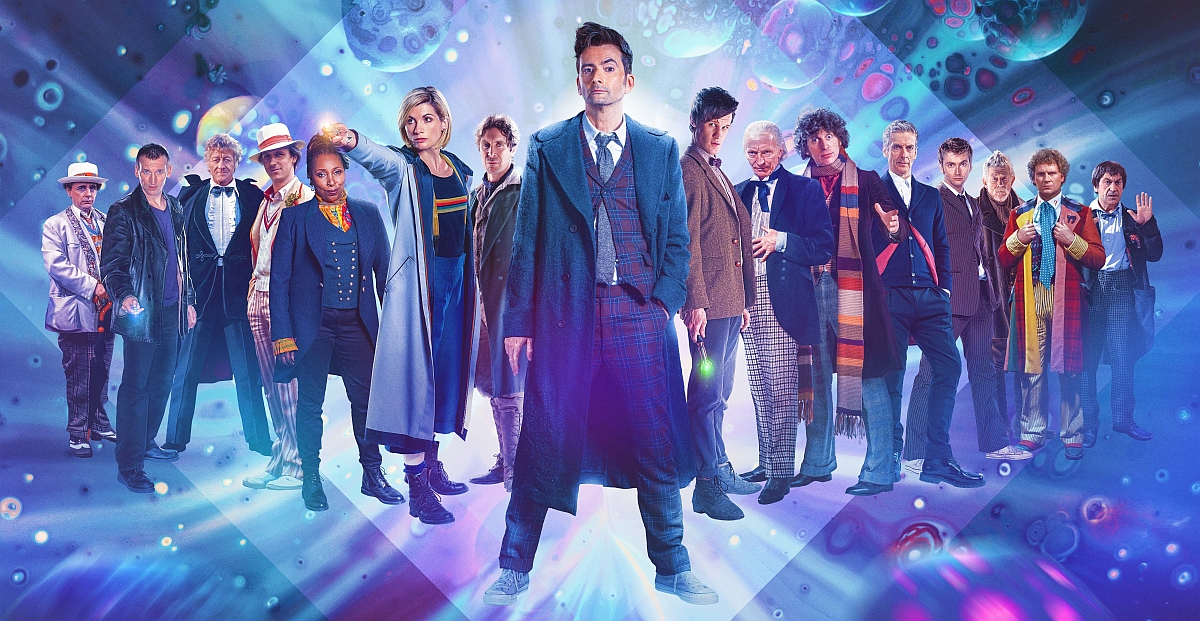Main Character Syndrome can be as innocuous as walking through the city at night, music blaring in your headphones. Suitably soundtracked, you suddenly feel as if you’re the star of your own movie and everyone else is your supporting cast. But what if seeing your life as fiction, and yourself as the protagonist, also limits your ways of interacting with the world?
I spent part of my summer bingeing the Netflix animated series Scott Pilgrim Takes Off. There’s plenty to recommend about it — paparazzi ninjas, veganism-based superpowers, someone punching a hole in the moon — but its most surprising element is how it takes a bold and unexpected stand against the idea of a protagonist as a narrative necessity.
A comic book series by author Bryan Lee O’Malley, Scott Pilgrim ran from 2004 to 2010. Its seven books were inspired by classic video games, manga-style fights, and coming-of-age dramas: determined to win the affections of the mysterious Ramona Flowers, Scott Pilgrim finds that he must fight her “seven evil exes”, some of whom famously explode into a shower of coins once defeated.
Scott is a problematic protagonist: he’s self-involved, emotionally underdeveloped, and dating a high schooler even though he’s in his twenties. But we still feel ourselves as part of Scott’s quest as he levels up and battles his enemies, all for love. His wins are our wins. If Neil Gaiman is right when he says that a book is a “little empathy machine” that “puts you inside somebody else’s head”, the machine is working as expected here, with Scott at the wheel.
But is it real empathy? As writer Namwali Serpell points out in The New York Review, “narrative art is indeed an incredible vehicle for virtual experience — we think and feel with characters. It simulates empathy, so we believe it stimulates it.” That difference, between simulation and stimulation, questions the usual assumptions about empathy in fiction being an automatic good.
(Serpell adds, sardonically, that authors must always “imagine themselves into others” and yet are “not historically renowned for being good people”.)
I would argue that If we choose to walk in Scott Pilgrim’s iconic Adidas Superstars, we’re not just empathising with the story’s protagonist — we’re also absorbing the shape of the story itself. The lone warrior fighting a series of battles for a distant reward is an all-too-familiar narrative structure. So familiar, in fact, that a recent psychological study, summarised in Scientific American, suggests using it to your advantage.
By thinking of your experiences to fit seven elements (“a lead protagonist, a shift of circumstances, a quest, allies, a challenge, a personal transformation and a resulting legacy”) it suggests you can make your life feel more meaningful. Why not? What’s the harm in envisioning yourself as the main character of a story structured like an 8-bit video game?
I was reminded of what Ursula K Le Guin said about focusing on conflict in stories at the expense of everything else:
If you say that story is about conflict, that plot must be based on conflict, you’re limiting your view of the world severely. And in a sense making a political statement: that life is conflict, so in stories conflict is all that really matters. This is simply untrue.
If all you have is a traditional hero’s journey — individualistic and conflict-driven above all — what other path is there to tread? There’s a reason the second Scott Pilgrim book is called Scott Pilgrim Versus The World.
Scott Pilgrim always relished its game logic, so — as Zach Rabinoff points out in Polygon — “like the good video game character that he is, Scott gets to press the reset button, start over, and do better this time around.” The surprising part is what “doing better” looks like.
This time, at the end of the (mostly faithful) first episode, it’s Scott who is defeated instead of the first ex, leaving a handful of coins behind and leaving the other characters scrambling in his wake. Minor players become major ones; one-dimensional villains become three-dimensional, and not villains at all. It’s as though Shakespeare wrote his own Rosencrantz and Guildenstern Are Dead.
Without Scott’s shadow looming over the story, the other characters in Scott Pilgrim Takes Off find themselves free. Ramona befriends some of her exes; some of her exes befriend each other. Scott’s high school-age girlfriend, Knives Chau, finally gets a plotline of her own beyond Scott’s betrayal, joining Scott’s old band to rock out with new friends. It becomes a story about forging a web of connections, rather than one man’s quest.
O’Malley has said that he returned to Scott Pilgrim to give all the characters “a little more pathos, a little more depth and nuance.” He has also explained the changes were made because the story has been “paying attention to you”, its audience, and that “it’s grown up alongside you.” Scott Pilgrim, even in its original form, was always about the process of maturing (as expressed most directly by Scott “levelling up” after making adult decisions). In Scott Pilgrim Takes Off, however, the story asks a more provocative question: can growing up sometimes look like stepping aside for other people’s stories?
Douglas Adams wrote in The Hitchhiker’s Guide To The Galaxy about a Total Perspective Vortex machine that showed you exactly how small you are in the universe. Using the machine would immediately drive you mad. As we get older, a vast majority of us will face some version of this device. We aren’t necessarily playing the roles we thought we’d be, or on the scale or stage we’d hoped for. We tell ourselves there are no small parts, only small actors — right? This is often portrayed as tragedy. As Elena cries out in Uncle Vanya: “And I’m a bore, a minor character… in music, in my husband’s house, in all my romances — in short, everywhere, I’ve been a minor character.”
There’s a freedom, though, in not seeing yourself as life’s protagonist. You can stop thinking about yourself and spend more time thinking about others; you can quit inching the plot forward and spend more time enjoying moments along the way. Everyone knows the sidekick gets the best lines. Besides, as the internet axiom tells us, “Each day on twitter there is one main character. The goal is to never be it.”
Scott Pilgrim Takes Off eventually does allow Scott Pilgrim back into its narrative, but only to face a final enemy: himself. Turns out growing old isn’t the same as growing up, and Old Scott doesn’t care about anyone else. Because the opposite of a main character isn’t a sidekick. It’s an NPC. A mindless drone with limited reasoning and even less dialogue, mostly there — in its original medium, gaming — to act as cannon fodder. Calling someone an NPC has become a favourite insult in online right-wing discourse. It’s shorthand for utter dehumanisation.
Push this logic far enough and there’s no reason to invest in anyone else’s story. They’re not even real. Not like you.
Scott Pilgrim Takes Off doesn’t sidestep Le Guin’s concerns about conflict in fiction. There’s a show-stopping fight scene in every episode. But it also isn’t just those same seven elements plotted out far ahead: protagonist, quest, transformation, et cetera. It breaks free of the Main Character trap to offer different pleasures and differing viewpoints. Empathy and affection. Unexpected relationships, sudden epiphanies, and an elaborate homage to Buster Keaton’s Sherlock Jr.
Maybe it’s asking too much of any empathy machine to make us better human beings, let alone allow us access to a total perspective vortex. But I admired how O’Malley returned to his old work and, instead of just playing the hits, gave us something subversive. I’ll be thinking about it next time I’m walking through the city at night, music blaring in my headphones. What kind of movie will be about to begin — and what shape will it take?



